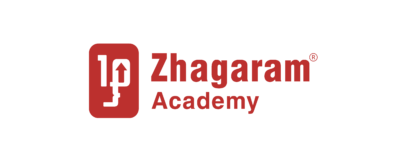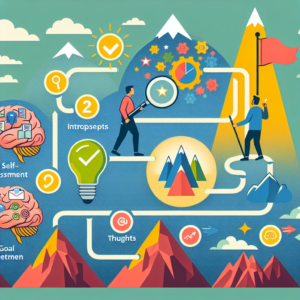Introduction
Success in one’s career is no random occurrence. It is the direct result of strategic planning, persistence, and application of one’s strengths. Understanding what sets you apart is fundamental to attaining your career goals. But how do you recognize these strengths? How do you use them to outshine others in your professional field? This article will help you understand the importance of identifying your strengths for career growth and how self-assessment and goal-setting can help bolster your success.
Importance of Identifying Strengths for Career Success
Every individual possesses unique strengths. These strengths could be innate talents or skills developed over time. Knowing your strengths allows you to:
• Ability to position yourself in a way that aligns with your competencies.
• Confidence to take on new challenges while capitalizing on your abilities.
• Capability to bring valuable contributions to the team and organization.
• Clarity in career path planning and decision-making processes.
Overview of Self-assessment and Goal Setting
The path to career success begins with a crucial step of self-assessment. This method helps you analyze your skills, talents, and personal attributes that can offer you significant advantages in your professional life. Following self-assessment, goal setting comes into play, providing you with clear objectives to strive for, thereby facilitating your journey to career success. These processes, paired together, enable you to uncover your potential and illuminate the path to fulfilling your career aspirations.
Understanding Self-Assessment
Self-assessment is a critical first step that lays the groundwork for realizing career potential.
Definition and Purpose of Self-Assessment
At its core, self-assessment evaluates your strengths, weaknesses, behaviors, motivations, and skills. It aims to inspire a deeper, more candid self-understanding, which invariably leads to self-improvement. In the context of career development, self-assessment is a powerful tool for identifying areas of capability and areas that need further enhancement.
Benefits of Self-Assessment for Career Development
The merits of self-assessment translate directly into career success. Here are a few ways how:
1. It fosters self-awareness: Understanding who you are as a professional sets a solid foundation for career planning.
2. Promotes personal growth: Revealing gaps in your skills and competencies allows you to seek the necessary training, enabling your career progress.
3. Assists in making informed career decisions: By understanding your preferences, you can highlight the career opportunities that best align with your strengths and interests.
Various Self-Assessment Techniques and Tools
The methodology of self-assessment is multi-faceted. It could range from informal techniques like journaling and mind mapping to formal tools like psychometric tests and strength finder assessments. 360-degree feedback provides an all-around perspective, where feedback is sought from colleagues, subordinates, and supervisors. Meanwhile, the SWOT analysis helps evaluate strengths, weaknesses, opportunities, and threats relevant to your career aspirations. The right combination of techniques provides a comprehensive understanding of one’s capabilities in the professional realm.
Identifying Your Strengths
Recognizing personal strengths is the cornerstone of self-assessment and career success. No one climbs the ladder of success without a firm understanding of what they can bring.
Importance of knowing your strengths
Knowing your strengths allows you to focus your efforts where you can make the most impact. It builds confidence, increases efficiency, and leads to higher job satisfaction. Acknowledging these strengths can amplify your personal development, helping you stand out in your career. Moreover, leveraging your strengths can ascend you into leadership roles, shaping you into a valuable asset for your organization.
Reflection exercises to uncover your strengths
Unearth your strengths through self-reflection. Ask yourself, “What comes naturally to me?” “What tasks do I enjoy doing?” “In what activities do I often excel at?” Reflect on those moments when you feel most productive or deliver impeccable work.
– Start by listing down your skills- both technical and personal.
– Recognize patterns in your successes.
– Seek alignment between your interests and strengths.
– Consider those activities that energize you rather than drain you.
Seeking feedback from others
Getting an external perspective is also invaluable. We often overlook our strengths, taking them for granted or not seeing them as strengths. Ask for feedback from peers, mentors, or supervisors. They will be able to point out your strengths objectively. Feedback could come in casual conversations, formal performance reviews, or 360-degree feedback mechanisms. Embrace the feedback, improve upon your weaknesses, and build your career on your strengths for maximum success.
Types of Strengths
To maximize career success, understanding and harnessing your strengths is crucial. But what are these strengths? In general, strengths can be classified into four primary categories: hard skills, soft skills, transferable skills, and personal qualities. Let’s take a closer look at these categories.
Hard skills
Hard skills are specific, teachable abilities that can be defined and measured, such as writing, math, reading, and the ability to use software programs. For instance, if you’re an artist, one of your hard skills might be drawing. If you’re a writer, you could list your proficiency in a language as a complex skill. In your career:
• Understanding your hard skills can boost your job performance by highlighting areas where you excel.
• Knowing your strengths can also help you when pursuing further education or professional development.
Soft skills
On the other hand, soft skills are more subjective and more complex to quantify. These could be personal habits, traits, abilities, and attitudes like effective communication, teamwork, problem-solving skills, and flexibility. Soft skills are equally vital for career success. Here’s why:
• Having solid soft skills can build and maintain strong working relationships.
• They can help you communicate your ideas more effectively and navigate the complexities of interpersonal interactions in the workplace.
Transferable skills and how they contribute to career success
Transferable skills are relevant and helpful abilities across different areas of life: socially, professionally, and at school—like creativity, listening, leadership, time management, or organization. These skills carry across jobs, regardless of the industry. Employability greatly benefits from transferable skills for the following reasons:
• Since transferable skills can adapt to various job functions and careers, they can help ensure career success in times of job change or market shift.
Personal qualities and characteristics that serve as strengths
Lastly, personal qualities—a combination of characteristics, behavior, traits, and personal dispositions—can often set you apart. These personal strengths might include a positive attitude, persistence, resilience, and passion.
• By playing to your personal qualities, you can leverage them into career success.
• Personal qualities like resilience and persistence, for instance, are often sought after in highly stressful industries like law enforcement or medicine.
In conclusion, harnessing these strengths—hard skills, soft skills, transferable skills, and personal qualities—will pave the way towards a successful career. Understanding and leveraging them can take your career to heights you perhaps hadn’t dared to envision before.
Assessing Strengths for Career Alignment
To set sail toward career success, starting with a thorough self-assessment of your strengths is crucial. This understanding will pave your journey to personal development and greater work satisfaction.
Understanding the Relationship Between Strengths and Career Choices
Our career choices aren’t arbitrary; they often reflect our innate strengths and abilities. Recognizing these strengths is the first step toward thriving in your chosen profession. These characteristics shape a successful professional, whether it is leadership, analytical thinking, creative insight, or communication. Remember to underestimate the value of what comes naturally; these are often your most significant strengths.
Assessing Strengths Based on Job Requirements and Industry Trends
Align your strengths with job requirements and industry trends. Start by creating a list of your strengths alongside the requirements of your desired role. This comparison will yield invaluable insight into your suitability for the role. Similarly, look at industry trends – they change frequently, and you’ll want to align your aptitudes accordingly. For instance:
– There’s a strong alignment if the role demands problem-solving skills and you’re naturally good at it.
– If data analysis is a hot industry trend and you enjoy diving deep into numbers, this can be leveraged as a strength.
Aligning Strengths With Personal Interests and Values
Lastly, align your strengths with your interests and values. Not only will this increase your job satisfaction, but it will also ensure long-term success in your career. Consider your passions, what motivates you, and what you truly value in life. Add these to your strengths list and use them as drivers in your career. Remember, a job that resonates with your actual self will always bring tremendous success and satisfaction.
Goal Setting for Career Success
Recognizing your strengths is only the first step toward career success. The critical subsequent step involves setting compelling and achievable goals aligned with your strengths to propel you toward your career aspirations.
Importance of Setting Goals for Career Growth
Goal-setting is fundamental to career development and advancement. It provides a clear vision, facilitates focus, enhances motivation, and boosts self-confidence. By setting career goals, you establish a roadmap towards career success, one where:
– You can track your progress.
– Evaluate your performance.
– Adjust your strategies when necessary.
SMART Goal-Setting Framework
Consider the SMART (Specific, Measurable, Achievable, Relevant, and Time-bound) framework to aid in setting effective and impactful goals.
– Specific: Your goal should be clear and well-defined.
– Measurable: Include precise amounts, dates, and so on in your goals so you can measure your degree of success.
– Achievable: Ensure your goal is attainable but still requires effort.
– Relevant: Your goal should be in line with your career path.
– Time-bound: Give yourself a deadline by when you aim to achieve the goal.
Setting Short-Term and Long-Term Career Goals
Remember that career development is a long-term journey. You should set short-term (achievable within a year) and long-term goals (achievable in 5-10 years). Short-term goals should lead and contribute to accomplishing your long-term career goals. For example, if an individual’s long-term goal is to become a CEO, their short-term goals may involve acquiring leadership experience or pursuing an MBA. Thus, your goal-setting must balance immediate accomplishment and your ultimate career aspirations.
Leveraging Strengths in the Workplace
Effectively leveraging your strengths at the workplace does not only put you on a path to career success but also personal fulfillment. This requires keen attention in three specific areas:
- Identifying opportunities within your current job
- Communicating your strengths to others
- Aligning strengths with growth opportunities
Identifying opportunities to utilize strengths in your current job
Identifying opportunities within your daily tasks where you can apply your strengths for optimal outcomes is essential. To do this, start by:
– Documenting your daily tasks and responsibilities.
– Juxtaposing your strengths with these tasks.
This exercise will highlight areas where you can maximize your strengths and make your job more fulfilling.
Communicating your strengths effectively to employers and colleagues
To fully leverage your strengths, you must communicate them effectively to your employers and colleagues. Here’s how you can do it:
– Find appropriate moments to showcase your strengths during meetings or presentations.
– Actively seek feedback to improve and refine your strengths.
By effectively communicating your strengths, you create a positive perception of your capabilities, helping to influence your professional relationships and career progression.
Seeking growth opportunities that align with your strengths
Finally, always prioritize growth opportunities that align best with your strengths. This could mean:
– Identifying career paths that let you use more of your strengths.
– Applying for roles or projects that require skills you’re naturally good at.
Capitalizing on such opportunities accelerates your career growth and ensures longevity and satisfaction in your career.
Developing Weaknesses vs. Enhancing Strengths
The paradigm of concentrating on improving our weaknesses versus leveraging our strengths has been a topic of lengthy discussion. Most of us have been taught to focus extensively on addressing our weak areas from an early age. However, a more sustainable approach can be to expand on our strengths while managing our weaknesses.
Understanding the Balance Between Addressing Weaknesses and Focusing on Strengths
Striking the right equilibrium between knowing and working on your weak areas and enhancing your strengths is pivotal for success. It’s about recognizing your deficits but not letting them overshadow your abilities. Here are a few recommendations to maintain this balance:
• Acknowledge your weaknesses, but don’t obsess over them.
• Capitalize on your strengths and make them the highlight of your personal and professional profile.
• Learn how to manage your weaknesses, for instance, by building systems that support those areas.
Strategies for Improving Weaknesses or Partnering with Others to Compensate
One way to confront weaknesses is by turning them into opportunities for improvement. However, if some failings are outside your control or hard to change, pairing up with someone who complements those areas can be beneficial. For example, if you need help with public speaking, collaborating with an eloquent speaker can support this weakness.
Leveraging Strengths to Overcome Challenges and Obstacles
Strengths are your weapons for defeating problems and barriers in your path. They provide the confidence to triumph over adversity. Be it leadership, adaptability, or innovative thinking – each strength has the potential to combat a unique set of challenges. Identify your core strengths and consider how they can be applied to your current and future challenges. Remember, the key to career success lies in maximizing potential. Balance your attention between enhancing and developing weaknesses, but always lead with your strengths.
Tracking Progress and Reassessment
Monitoring and assessing your progress is a vital part of achieving career success. It’s not enough to set goals and work towards them; you must also track your progress to ensure that you are moving in the right direction and at an appropriate pace.
Importance of monitoring and evaluating your progress
When you track your progress, you get a clear picture of where you stand and what needs to be done next. You can identify what’s working well and what isn’t, enabling you to make necessary adjustments. It also gives a sense of accomplishment as you cross off completed tasks, which can be a great motivation booster.
• Helps maintain focus on the goal
• Provides an opportunity for reflection and learning
• Keeps you accountable for your commitment
• Enables the identification of roadblocks early
Adjusting goals and strategies based on feedback and new insights
Progress tracking also allows for helpful feedback and fresh insights. You may need to revise your goals or alter your strategies based on these. You never know; a new, unforeseen opportunity that completely changes the game might be approaching.
• Openness to change leads to growth
• New insights could help refine your strategies
• Feedback aids in improving your approach
You are regularly reassessing your strengths to adapt to changes and new opportunities.
Career paths are rarely linear, and adapting to changes is part of the journey. Regular self-assessment of your strengths and how you can best use them in your current situation will lead you to new opportunities. Reassessing your strengths allows you to stay agile in your career, adjust to change, and continue to grow.
• Keeps you adaptable in your career
• Leverages strengths in different situations
• Enables exploration of new opportunities
Conclusion
As we find ourselves at the end of this enlightening journey, let’s review why these strategies are pivotal for our career success. The skill of self-assessment is not optional; it’s vital. It allows you to understand your true potential and to recognize and appreciate your own worth. Goal setting, on the other hand, directs this potential and focuses it. Setting clear, realistic, and achievable goals keeps you motivated, holds you accountable, and, most importantly, drives you to attain career success.
Recap of the importance of self-assessment and goal setting for career success
• Self-assessment allows self-discovery, strength identification, and weakness recognition.
• Goal setting provides direction, boosts determination, and fosters discipline.
• Both components create a robust structure for career growth and personal development.
Encouragement to take action and start identifying strengths for personal and professional growth
Now that you know the process and benefits, strong encouragement is extended to start identifying your strengths today. Quit living in obscurity, begin to heed your call to magnificence, and press into your unique potential. Remember, career success isn’t a destination; it’s an ongoing journey. Continuously strive for improvement and development. Do not fear change or confrontation with your real persona; they are stepping stones to your personal and professional growth. Assertively assess yourself, boldly set your goals, and start progressing toward your deserved career success.






